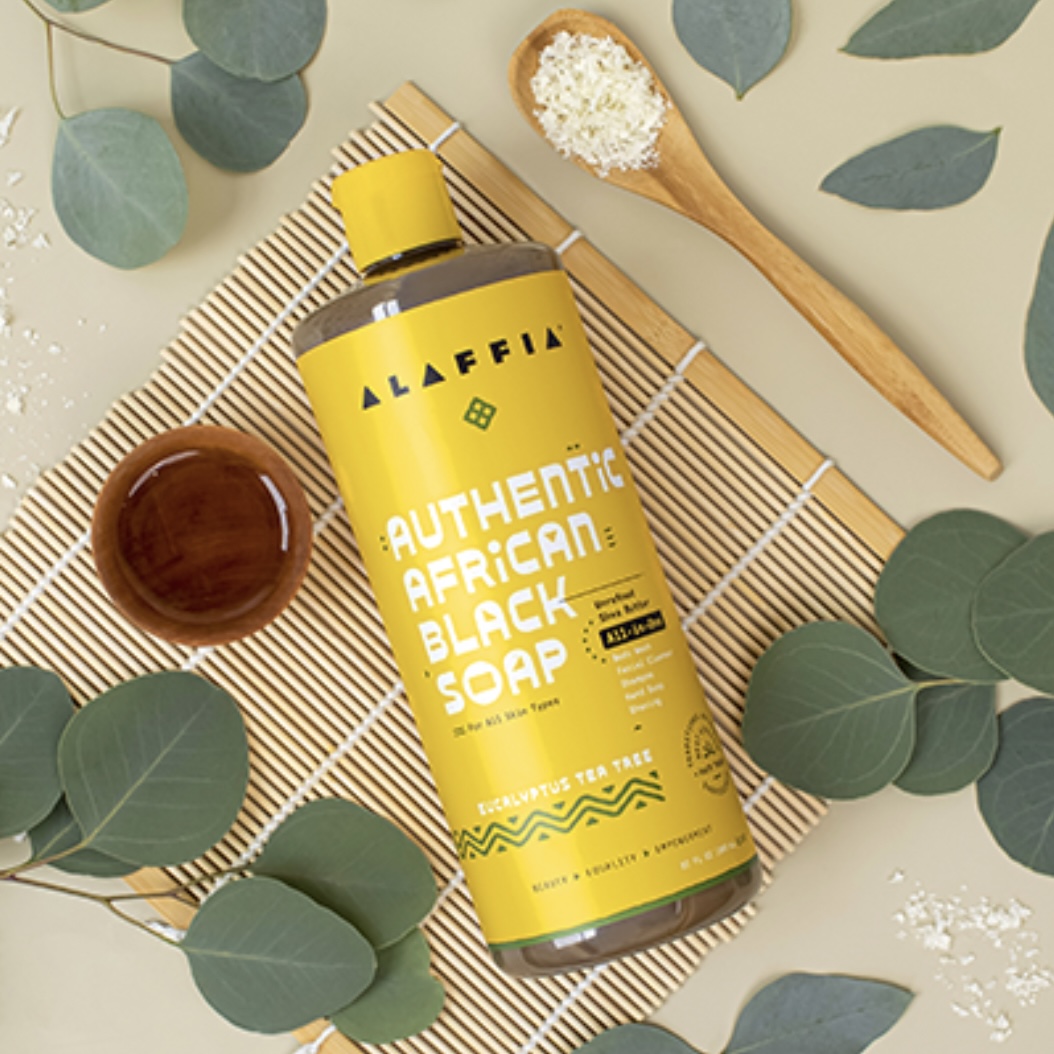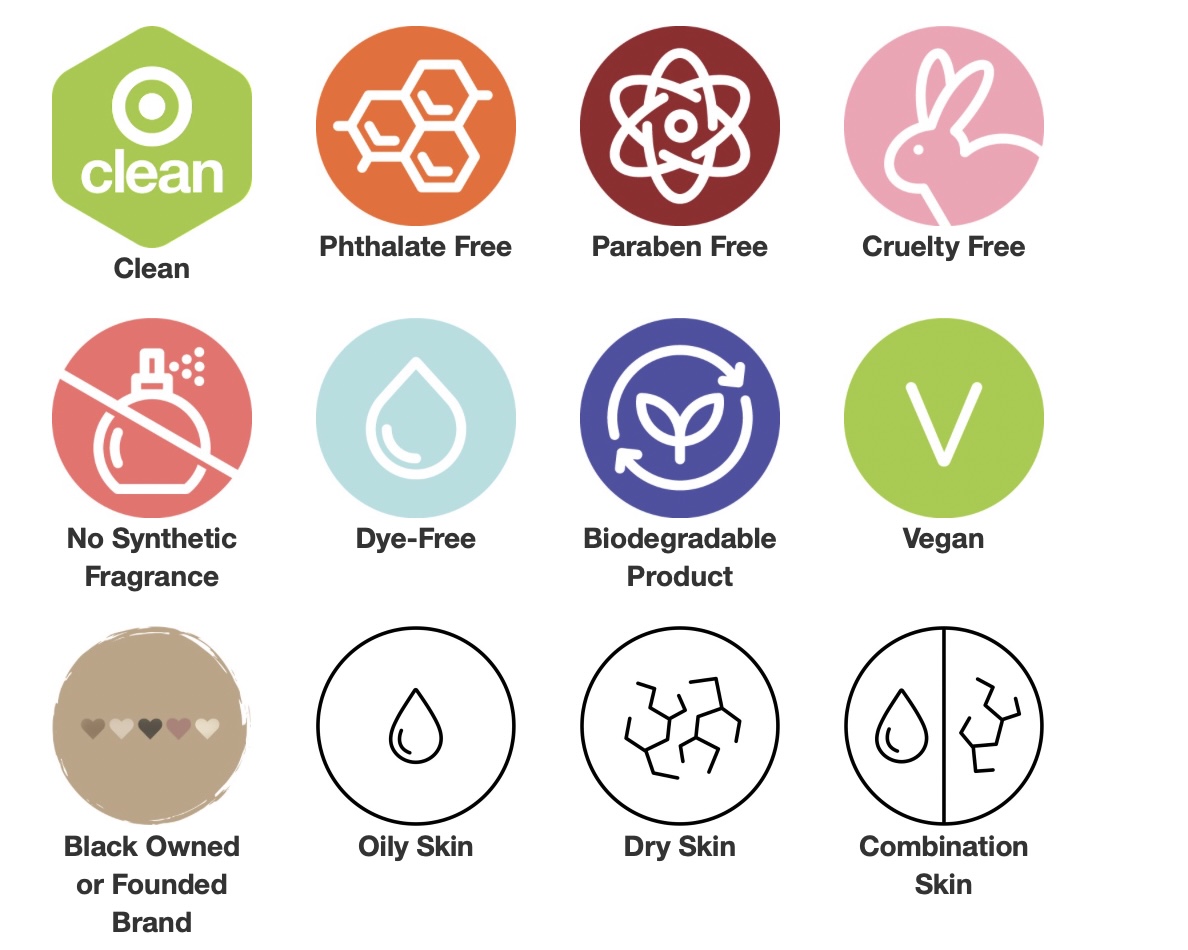Body Wash * Facial Cleanser * Shampoo * Hand Soap * Shaving

Deeply nourish and cleanse your entire body with Alaffia Authentic All-In-One African Black Soap Unscented. This 100% natural, unscented, soap is made from handcrafted unrefined shea butter which gently cleanses your skin and hair and helps reduce dryness. Activated charcoal helps remove impurities without stripping your skin of natural oils and keeps your skin and hair clean and smooth. Indulge daily without worrying about ever drying out your skin and hair.
Available Scents:
Eucalyptus, Peppermint, Wild Lavender, Unscented
(In order of scent option)
. . . . . . . . . . . . . . . . . . . .
*Suitable for oily, dry, or combination skin

. . . . . . . . . . . . . . . . . . . .
Alaffia’s simply unscented Authentic African Black Soap is made from a centuries-old recipe of handcrafted shea butter and West African palm oil†. Black soap is known by its Yoruba name, Ossé Dudu. Dudu means “black,” which comes from extensive cooking of the soap to the point of charcoal. Many cultures in West Africa use charcoal to detoxify and purify the skin.
Alaffia’s Authentic African Black Soap is likened to the home remedies of Togolese mamans. It’s made from a centuries-old recipe of handcrafted shea butter and Orangutan-safe West African palm oil. Saponification is reached by adding potash to the hot oils, then cooking it for six hours. The last step is curing the soap in the sun for three weeks, resulting in a gentle and effective soap that gently cleanses, clarifies and softens skin. Sulfate-free.
+ Our natural West African palm oil is grown and harvested by small-scale farmers in the Maritime region of Togo, from the town of Tsevie to Kpalime. The oil is extracted by our Fair Trade cooperative in Sokodé using traditional methods. When palm oil is grown as an industrial plantation crop, such as in Indonesia and Malaysia on newly cleared rain forests or peat-swamp forests rather than on already degraded land or disused agricultural land, it can contribute to the endangerment of animals such as the Orangutans. However, this is not the case with the small farms that we receive our palm oil from in Africa. Oil palms are native to West Africa and have been grown as part of multi-cropped sustainable small farms for centuries. Furthermore, it is important to point out that Orangutans do not exist at all in Africa.